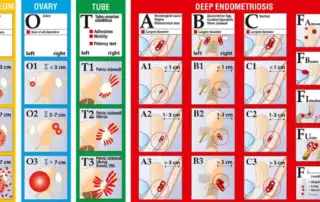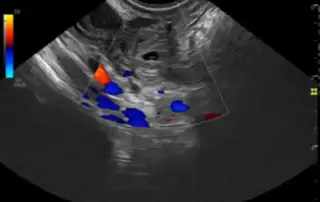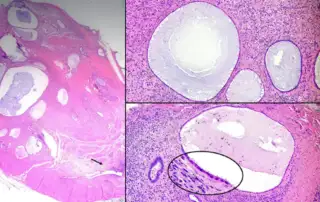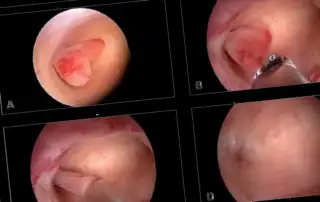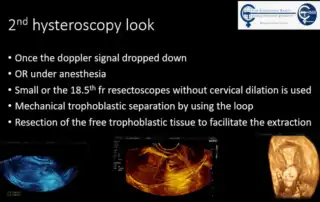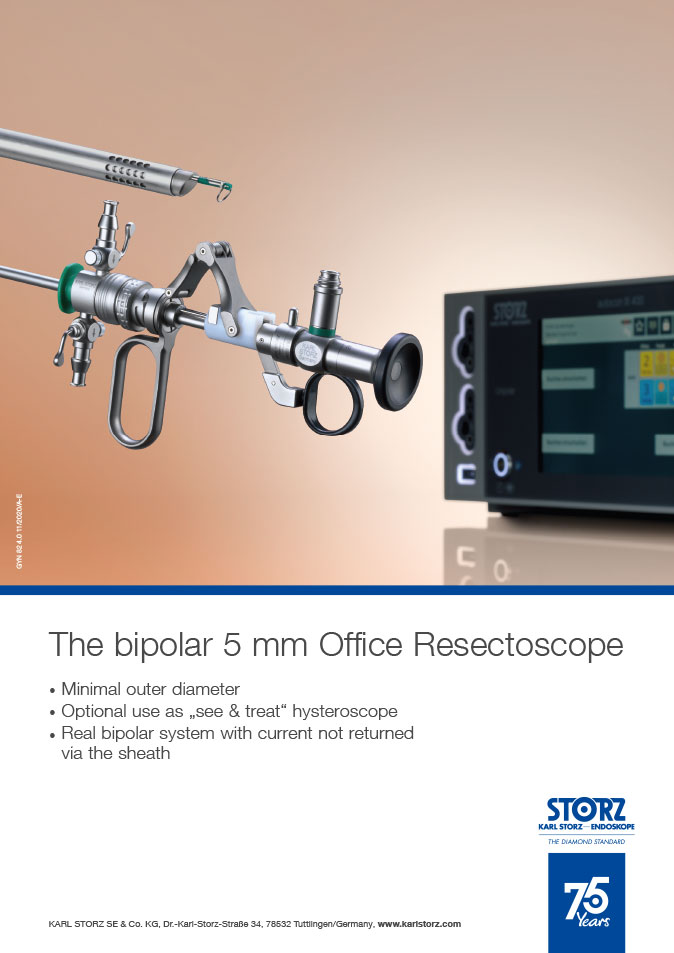Social media platforms have a significant influence on medical popular knowledge and the rejection of hormone treatment for endometriosis is an increasing issue for physicians meanwhile.
As Gynecologists we have to be aware of the power of social media and we have to know what happens outside our clinics and ambulatories. Endometriosis is a disease mainly influencing young women’s life; therefore, it plays especially in this group a major role. I have investigated social media and found informative content, professional groups offering very good support and information. But nevertheless, there is a huge amount of content on s.m. which is misleading and trying to make business with the disease… Continue reading introduction …
1. TVT placed under laparoscopic vision after previous colpo-suspension / 2. Failed Sacral colpopexy with a polyester suture
Index: TheTrocar Volume 5 – Issue 2. 2024
Introduction
Impact of Social Media on Endometriosis treatment
By Guenter Noé
Article list
- Use of imaging techniques for non-invasive diagnosis and classification of pelvic deep endometriosis – an International Consensus Statement
G. Condous1*, B. Gerges1 et al.
DOI: 10.36205/trocar5.2024007 - Polyps’ treatment with the 24Fr. Intrauterine BIGATTI Shaver (IBS): A 1000 patients’ retrospective descriptive analysis
Xia Yin, Xiaoshi Liu, Shu Zhang, Jun Shi, Aimin Zhao, Di Wen, Rudi Campo, Giuseppe Bigatti
DOI: 10.36205/ trocar5.2024009 - Postmenopausal Endometriosis Presenting with Left Hydronephrosis and Terminal Renal Loss (Case report)
Haley Fox; Nathan Burke; Nash Moawad; Zehra Ordulu; Amira Quevedo
DOI: 10.36205/trocar5.20240010 - Per-Hysteroscopic KCL intra-cardiac embryo-injection and management for Cesarean scare pregnancy Case report (Video article)
Adel Sedrati
DOI: 10.36205/trocarvid5.24002 - Transperitoneal migration of spermatozoa with Ruptured Ectopic gestation in a Unicornuate uterus (U4b)– A Case report (Video)
Chirag Wagh; Shinjini Pande; Vivek Salunke
DOI: 10.36205/trocar5.vid24003
Full articles open access
Use of imaging techniques for non-invasive diagnosis and classification of pelvic deep endometriosis – an International Consensus Statement
DOI: 10.36205/trocar5.20240007
Transperitoneal migration of spermatozoa with Ruptured Ectopic gestation in a Unicornuate uterus (U4b)
DOI: 10.36205/trocarvid5.24003
Postmenopausal Endometriosis Presenting with Left Hydronephrosis and Terminal Renal Loss
DOI: 10.36205/trocar5.20240010
Polyps’ treatment with the 24Fr. Intrauterine BIGATTI Shaver (IBS): A 1000 patients’ retrospective descriptive analysis
DOI: 10.36205/ trocar5.2024009
Per-Hysteroscopic KCL intra-cardiac embryo-injection and management for Cesarean scare pregnancy
DOI: 10.36205/trocarvid5.24002
Enhancing Hysteroscopic Surgery Safety in Hypofertile Patients through Advanced Gynaecological Ultrasound Imaging
DOI: 10.36205/trocar5.20240008
Impact of Social Media on Endometriosis treatment
As Gynecologists we have to be aware of the power of social media and we have to know what happens outside our clinics and ambulatories. Endometriosis is a disease mainly influencing young women’s life; therefore, it plays especially in this group a major role. I have investigated social media and found informative content, professional groups offering very good support and information. But nevertheless, there is a huge amount of content on s.m. which is misleading and trying to make business with the disease.
Users often share personal experiences, articles, and opinions about treatments. Misinformation or anecdotal evidence can spread rapidly, influencing people’s perceptions and decisions especially about hormone therapy for endometriosis.
Social media groups and forums provide a space for people with endometriosis to share their experiences and support each other. Positive or negative experiences with hormone therapy shared within these communities can strongly influence others’ attitudes toward such treatments. If influential users or a significant number of community members express dissatisfaction or adverse effects from hormone therapy, it can lead to a broader rejection of this treatment approach regardless research evidence. Social media exposes users to a wide range of treatment options, including alternative and complementary therapies. This increased awareness can lead some individuals to seek non-hormonal treatments, influenced by the testimonials and experiences shared by others on these platforms. SM is a powerful tool for advocacy. Activist groups and influencers may campaign against hormone therapies, emphasizing potential side effects, risks, or promoting a natural or holistic approach to managing endometriosis. These campaigns can shape public opinion and influence individual treatment choices. Negative experiences and adverse effects of hormone treatments tend to be more prominently shared and discussed on social media compared to positive outcomes. This amplification of negative stories can create a biased perception, leading to increased skepticism and rejection of hormone therapies. This can fuel mistrust in conventional medical treatments and institutions. This mistrust can be exacerbated by stories of misdiagnosis, inadequate care, or dismissive attitudes from healthcare professionals, leading individuals to reject hormone therapies in favor of alternatives perceived as safer or more holistic.
Health influencers and celebrities often share their health journeys on social media. Their endorsements or criticisms of certain treatments can heavily influence public opinion. If a popular figure rejects hormone therapy for endometriosis, their followers may be more likely to do the same. Overall, social media platforms significantly shape public perception and individual decisions regarding hormone therapy for endometriosis. They provide both opportunities for shared knowledge and challenges in terms of spreading misinformation and amplifying negative experiences.
The rejection or reduced use of hormone therapy for endometriosis can have several significant impacts on the treatment of the condition and result in: Increased Pain and Symptoms, Limited Treatment Options, Surgical Interventions, reduce Quality of Life.
Healthcare providers might need to invest more in patient education and support services to help patients manage their symptoms through non-hormonal means. This includes providing information about pain management strategies, mental health support, and connecting patients with support groups. Overall, the rejection of hormone therapy for endometriosis poses challenges but also opportunities for advancing treatment and patient care through the exploration of new therapies and comprehensive management approaches.
How can Physicians combat misleading information regarding hormone treatment for endometriosis?
First of all, patient education is a task. Provide thorough and clear information during consultations. Explaining the benefits, risks, and potential side effects of hormone therapy helps patients make informed decisions based on accurate medical knowledge rather than misinformation and try to evaluate the patients’ expectations. Encourage patients to ask questions and express their concerns about hormone therapy. Addressing misconceptions directly in a supportive and non-judgmental manner can help build trust and clarify misunderstandings.
Direct patients to reputable sources of information such as medical websites, professional organizations, and peer-reviewed articles. Providing brochures or handouts that explain hormone therapy can also be helpful. Physicians can actively participate on social media platforms to share accurate information and counteract misinformation. By creating educational posts, videos, and engaging in discussions, they can reach a broader audience and provide evidence-based insights.
Partnering with trusted health influencers or patient advocates who can help disseminate accurate information can be effective. Influencers with a large following can amplify the reach of evidence-based information. Sharing positive experiences from other patients who have benefited from hormone therapy can help counteract negative stories. This can be done through patient support groups, clinic websites, or social media platforms. Hosting workshops or webinars on endometriosis and its treatments can provide patients with detailed information and an opportunity to ask questions in a more structured setting. These can be recorded and shared on various platforms. Another option is to collaborate with other healthcare providers such as nutritionists, physical therapists, and mental health professionals to offer a comprehensive treatment plan. This holistic approach can address the multifaceted nature of endometriosis and reduce the reliance on potentially misleading sources. Encourage the formation of or participate in support groups where patients can share experiences under the guidance of healthcare professionals. These groups can provide a balanced view and help dispel myths. Implementing these strategies, physicians can help ensure that patients receive accurate information about hormone therapy for endometriosis and make treatment decisions based on reliable data.
When physicians approach patients on social media, several important considerations should be kept in mind to ensure effective, ethical, and professional interactions:
- Maintain Professionalism: Always communicate in a professional manner. This includes using appropriate language, maintaining a respectful tone, and being mindful of how your posts and comments might be perceived. Don’t try to adapt your language to the age of the patients.
- Respect Privacy and Confidentiality: Never share personal health information or specific patient cases on social media without explicit consent. Adhere to HIPAA (Health Insurance Portability and Accountability Act) guidelines and other relevant privacy laws to protect patient confidentiality.
- Provide Accurate Information: Ensure that the information shared is evidence-based, accurate, and up-to-date. Avoid spreading misinformation or unverified medical advice. Cite reputable sources and peer-reviewed studies when possible.
- Engage Responsibly: While it’s important to be responsive, set boundaries for interactions. Avoid providing specific medical advice or diagnoses in public forums. Instead, encourage patients to schedule an appointment for personalized medical advice.
- Educate and Inform: Use social media as a platform to educate patients and the public about endometriosis, its symptoms, treatment options, and recent advancements. Share informative articles, videos, infographics, and other educational content.
- Be Transparent: Clearly disclose your professional credentials and affiliations. Transparency about your background helps build trust and credibility with your audience.
- Address Misinformation: Tactfully correct misinformation and myths about endometriosis and its treatment that you encounter on social media. Provide evidence-based explanations to counteract false claims.
- Promote Resources: Direct patients to reliable resources for further information, such as reputable medical websites, professional organizations (e.g., Endometriosis Foundation of America), and peer-reviewed journals.
- Respect Diverse Opinions: Acknowledge that patients may have diverse experiences and opinions about their treatment. Be open to listening and engaging in constructive dialogue.
- Encourage Professional Follow-Up: When patients seek specific medical advice, encourage them to follow up with their healthcare provider. Use social media as a tool for general education rather than personalized medical consultation.
- Stay Updated: Social media trends and platforms evolve quickly. Stay updated on best practices for using these platforms effectively and ethically. Engage in continuous learning about digital communication in healthcare.
- Use Secure Platforms for Sensitive Discussions: If more detailed or sensitive discussions are necessary, use secure, private communication channels rather than public social media posts.
By adhering to these principles, physicians can effectively use social media to educate, support, and engage with patients while maintaining ethical and professional standards.
Overall, the discussion in the field of endometriosis treatment is dynamic and multifaceted, reflecting a shift towards more individualized, comprehensive, and less invasive approaches to managing this complex condition. This text is not a scientific reappraisal of the topic, but we as doctors must be aware of the power of information and misinformation. Therefore, with this text I would like to give you an impetus to think about activities in s.m. or at least to know about them. Doctors, especially surgeons, are sometimes very active on social media. Therefore, this should be used above all to counteract undesirable developments. The current rejection of hormonal anticonception and, consequently, the rejection of its use in endometriosis treatment is a very important aspect.
Yours
Guenter Noé
Disclosure: I used the help of chat gpt to create the text.
MEMBERS AREA

AD: Application video MetraBag – Dr. Noé (Dormagen); In this video we introduce you to the BOWA MetraBag.

AD: ERGOact: The future is in your hands; With ERGOact, the first manually activated bipolar coagulation instrument.
Sponsored by Karl Storz Endoskope.


Sponsored by KLS Martin Group.


